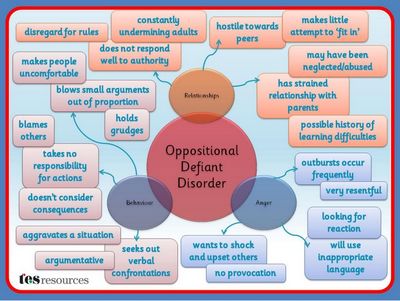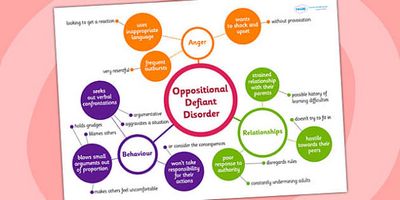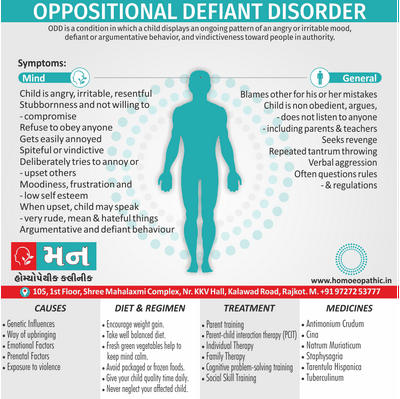The cause of ODD (Oppositional Defiant Disorder) is still unknown, although both genetic and social factors have been suspected as a potential cause.

One theory suggests that children who have oppositional defiant disorder develop unusually high levels of negative and pessimistic emotions (two key characteristics of ODD), and this, in turn, may lead to a lower ability to manage their emotions. Other theories propose that children with ODD: have unusually high levels of anxiety and depression (both of which can be a symptom of ODD), have a predisposition towards violence and abuse at home or are exposed to a traumatic event at some point in their lives.
There is no definitive evidence for the causes of ODD; in fact, this disorder is difficult to diagnose in children and may go undiagnosed. However, it has been noted that children who suffer from oppositional defiant disorder are likely to have lower IQs than their peers, and these IQs are associated with poorer performance in school.

Children who have ODD often also tend to score higher on tests of poor memory, and may display ADHD-like symptoms such as hyperactivity, inattention and impulsivity.
If you suspect that your child has ODD, you should contact your pediatrician immediately. Your doctor may refer your child to a psychologist to determine the cause of the child’s ODD, as well as help determine how to treat the child. It is important that your child undergoes regular evaluations by a qualified psychiatrist or psychologist, because ODD may have multiple causes.

While there is no “cure” for ODD, medication and therapy are usually effective treatments for the disorder, so it’s always a good idea to discuss any concerns about your child’s behavior with your family doctor.
If you suspect that your child may have ODD, there are several things that you should do to help your child get on the road to recovery. First, your child needs the support of his or her parents and caregivers in order to help him or her overcome the challenges of ODD.
In addition, your child should be in an environment where he or she feels safe and loved. In order to be successful in treatment, the patient should receive a full-time, loving care-giver, and one who is able to provide structure and discipline, as well as praise and rewards.

To help your child feel loved and understood, he or she should be surrounded by people who accept him or her for who he or she is, and not only recognize the problems that have arisen in life.
Once your child has received treatment for ODD, he or she needs to learn how to be in control and maintain it. You should also make sure that your child has adequate support in the form of family therapy and constant supervision from his or her parents and caregivers.
Because ODD is a disorder, parents who are concerned about their child’s behavior need to provide structure in order to ensure the child’s recovery. When your child gets to adulthood, parents need to take a very active role in helping him or her become responsible for his or her own actions.

Parents must also make sure that your child knows that their parents love them, respect them and are there to listen to their concerns.
A child’s behavior has a direct impact on your family. If you want to help your child to overcome ODD, you should be very involved in his or her life. Even though the exact causes of this disorder are unknown, you can provide your child with the support that he or she needs to achieve a better life.